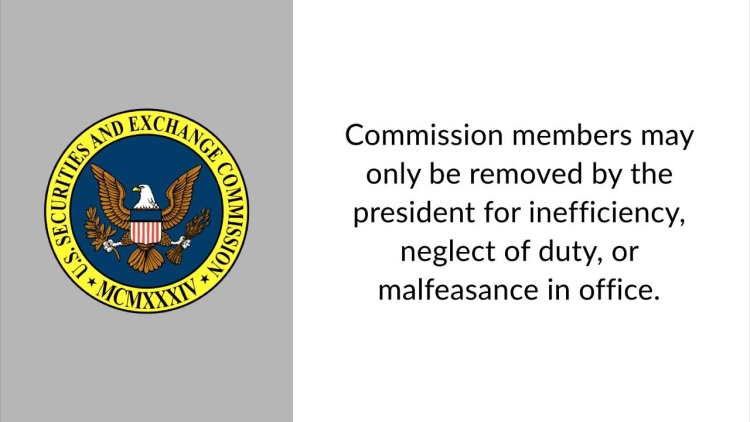Free Enterprise Fund v. Public Company Accounting Oversight Board
United States Supreme Court
561 U.S. 477, 130 S. Ct. 3138, 177 L. Ed. 2d 706 (2010)

- Written by Eric Cervone, LLM
Facts
In 2002, Congress enacted the Sarbanes-Oxley Act. Among other provisions, it provided for regulating of the accounting industry by a new Public Company Accounting Oversight Board (board) (defendant). The board was to be composed of five members, appointed to staggered five-year terms. The board was under the oversight of the Securities and Exchange Commission (SEC), but the SEC could not remove board members except for good cause. SEC commissioners determined whether there was good cause to remove a board member. SEC commissioners could not be removed by the president except for “inefficiency, neglect of duty, or malfeasance in office.” The board began an investigation of Beckstead and Watts, LLP (plaintiff), a Nevada accounting firm, after it found deficiencies in its accounting procedures in an inspection. Beckstead and Watts and the Free Enterprise Fund (plaintiff), a nonprofit organization of which Beckstead & Watts was a member, brought suit, seeking, among other things, a declaratory judgment that the board was unconstitutional because the board’s protection from removal was in conflict with Article II’s vesting of the executive power in the president. The lower courts rejected plaintiffs’ claims. The Supreme Court granted certiorari.
Rule of Law
Issue
Holding and Reasoning (Roberts, C.J.)
Dissent (Breyer, J.)
What to do next…
Here's why 903,000 law students have relied on our case briefs:
- Written by law professors and practitioners, not other law students. 47,100 briefs, keyed to 995 casebooks. Top-notch customer support.
- The right amount of information, includes the facts, issues, rule of law, holding and reasoning, and any concurrences and dissents.
- Access in your classes, works on your mobile and tablet. Massive library of related video lessons and high quality multiple-choice questions.
- Easy to use, uniform format for every case brief. Written in plain English, not in legalese. Our briefs summarize and simplify; they don’t just repeat the court’s language.





